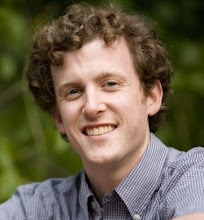
Consider this the second installment in my irregular series of posts, in which I offer poorly-written, surface-level reviews of new works by and about my favorite people. (#1 was here.)
At the beginning of the summer, I read the new biography of Flannery O'Connor by Brad Gooch. It just jumped off the shelf and into my hand at The Regulator, a favorite independent bookstore in Durham. Give the publisher ten points for the design of the dustjacket; I think it's a great cover. As for the book itself, I found it to be an engaging biography, and it's a real gift to fans of Flannery's work. For me, and I suspect for many, Flannery's appeal begins with her stories, but quickly expands to her person: we enjoy her characters, but are more fascinated by "The Catholic Novelist in the Protestant South," the literary star confined by lupus to a Georgia farm populated by exotic birds. A detailed biography provides a trove of material about the life she led, and presents it in a more accessible manner than does O'Connor's published correspondence.
From the blurbs on the back of the dustjacket, it sounds as if this is the first serious biography of Flannery. I don't know if that is true or not. But the biggest thing that Gooch, a professor of English at William Patterson University in New Jersey, brings to the table appears to be his tireless research. Having mined the correspondence of more peripheral characters in O'Connor's life, he is able to present quotations that reflect what people in her life thought about her early writings. He has also conducted interviews with her childhood and college schoolmates, capturing recollections of the young Flannery that would otherwise have been lost within a decade or two. He also has placed his hands on some invaluable artifacts, such as a journal of the twelve year old child. (On the cover, she had scrawled a warning: "I know some folks that don't mind their own bisnis." One such person was her teacher, who criticized her poor spelling -- a lifelong battle that interested Flannery very little.)
Gooch also tells the stories of several occasions on which Flannery was invited to read her stories to small literary gatherings, usually in the homes of friends. These mostly came later in her career; as a student at the Iowa Writers' Workshop, her intense southern drawl caused her to ask other students to read her stories for her.
I recently came across a recording of Flannery reading one of her most alarming stories, "A Good Man is Hard to Find". (Access it here.) I think the recording is from a television broadcast, but I'm not sure. In any case, it's the only time I have ever heard her voice, and if you're interested, it's worth downloading and listening to. Curiously (and supporting the TV-show hypothesis), she changes the N-word when it appears in the story. (She had once grown angry when one of her surrogate readers made the same change during a reading in Iowa.) Also, if you're following along at home, note that there is a short interruption in the recording early on in the story (from bottom of p. 118 to bottom of p. 119 in "The Complete Stories").

2 comments:
i love that you love flannery. i didn't know about this biography. i'll have to check it out. i've been re-reading her recently because my mentor, friend and english professor from baylor died in may of leukemia, and i studied flannery with her. there's something about the words that flannery wrote and that dr. chinn and i analyzed, studied and cherished alongside one another that helps me feel connected to dr. chinn in the present. thanks for the review, friend.
sounds great...will have to check it out.
Post a Comment